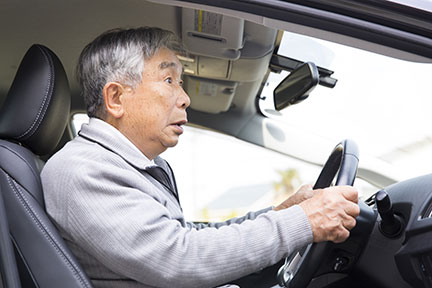
Senior citizens would like to remain independent for as long as they possibly can. They want to travel, go to the store and visit friends and family just as they always have.
On the other hand, some might choose alternative options for remaining independent other than living on their own. They may opt for assisted living where they would receive help with daily tasks and would not have to drive themselves around. There are seniors who prefer living on their own, but this may be challenging especially when driving.
Unfortunately, as people get older, the body cannot keep up with the tasks that they were used to when they were younger. They aged physically and mentally, and this takes a toll on their abilities to do certain activities like driving. Having diminished capacity to control a vehicle and make split second decisions may lead to traffic accidents that could cause serious harm.
If you want more information on how serious these accidents could be, you can research online for websites, such as https://1800injured.care/car-accident/west-palm-beach-attorney/ to know all the details associated with it.
Below are some of the risks seniors may face when getting behind the wheel:
1. Reduced Reflexes
Seniors may not react as quickly as a younger person would when faced with a sudden change of situation on the road. Sometimes the need to make split-second decision is needed while driving, however, seniors might not be able to decide on their next actions immediately when this transpires.
For instance, when there’s an abrupt need to swerve for a pedestrian or an animal that crosses the road, they need to respond impulsively before causing any harm. If the senior’s reflexes are too slow to make the body respond, an accident may surely occur.
In addition, another potential problem with reduced reflexes, is that seniors may step on the incorrect pedals, shifting in the wrong gear or not pulling up the handbrake. There can also be an instance that they’ll be turning the steering wheel in the wrong direction which may also cause accidents.
Although not intended, the harm will still be done and the senior will be held responsible regardless of their age or reason.
2. Decreased Reasoning Abilities
Driving involves a great deal of decision making. Choosing where to turn, following directions, looking out for street signs and following the rules of the road are all examples of how seniors should apply their reasoning abilities.
If they can’t effectively reason out and decide, they may experience many problems on the road. One of the main dilemmas for seniors while driving is losing their sense of direction or sudden memory loss.
3. Diminished Physical Capabilities
As they age, they tend to lose muscle mass and this means that they are physically less strong than they used to be when they were younger.
Not being strong enough to handle a vehicle on the road may also be another challenge for seniors. They need to be in control of the vehicle at all times to make sure that they turn and steer safely. If they cannot keep their vehicle in one lane, they could possibly cause an accident.
Ideally, one of the capabilities that people need to properly drive a vehicle, would be clear eyesight. However, seniors would usually have diminished eye sight at their age, which often leads them to miss out on seeing traffic lights or signals.
On top of that, the back and neck are less flexible as they age and this would be a struggle in seeing what’s going on around the vehicle. Seniors would experience some challenges looking in all the mirrors or checking the blind spot for any danger, and eventually may cause some difficulties for them while navigating busy roads or backing out of their driveway or parking space.
4. Increased Anxiety Levels
Unfortunately, seniors are not physically or mentally as sharp anymore, they realize that they need to concentrate extremely hard in order to successfully maneuver through traffic.
The fact that they are aware of this, may increase their anxiety level causing them to overfocus and make even more mistakes. An anxious driver could potentially be very dangerous on the road as they may brake more harshly or swerve unintentionally which may lead to running over a pedestrian or damages in properties
Conclusion
Age should not be the sole reason for taking away a senior’s right to drive, they should still be allowed for as long they are physically and mentally capable of ensuring safety to themselves and to others when they’re on the road. They should undergo regular check-ups to assess that all their senses and reasoning are in top shape and fit for driving.
Many seniors want to remain independent, because they don’t want to feel like a burden on other people and prefer to still drive and run their errands by themselves.
Driving becomes more challenging as people age, but if the senior can still handle the vehicle, can make rational decisions, and safely drive from point A to point B, then they can still be eligible to drive.
Author Bio
Daniel D. Gault is an attorney that specializes in assisting individuals involved in car accidents. He is 38 years old and has many years of experience in his field. When not at the office, he enjoys fishing and camping outdoors with his family.
